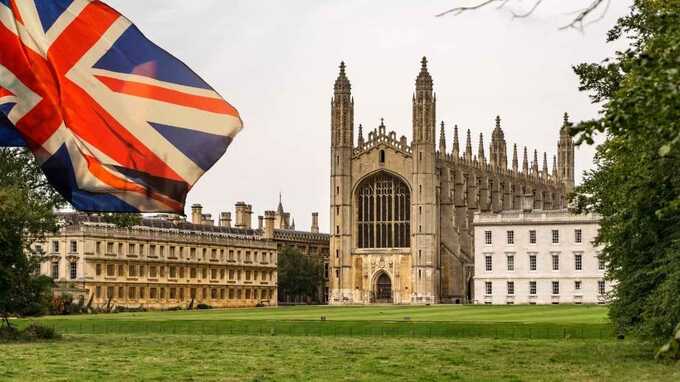
Education secretary ‘to consider options’ including repeal of controversial powers introduced by last government
Powers introduced by the Conservatives to protect freedom of speech in universities have been halted by the new government in a dramatic about-turn, paving the way for ministers to scrap the legislation.
Only days before it was due to come into force, the education secretary said she had decided to “stop further commencement of the Higher Education (Freedom of Speech) Act 2023, in order to consider options, including its repeal”.
Bridget Phillipson also announced major changes to the work of the higher education regulator in England, the Office for Students (OfS), in order to prioritise financial stability in the sector, as many universities struggle in the face of a mounting financial crisis.
The legislation, which faced bitter opposition from the point of its inception, required universities and student unions to take “reasonable steps” to promote free speech, or face sanctions by the regulator including possible fines.
Phillipson said the legislation was not fit for purpose and risked imposing heavy burdens on institutions. “For too long, universities have been a political battlefield and treated with contempt, rather than as a public good, distracting people from the core issues they face.”
She said the government remained “absolutely committed” to freedom of speech and academic freedom, adding: “This legislation could expose students to harm and appalling hate speech on campuses.
“That is why I have quickly ordered this legislation to be stopped so that we can take a view on next steps and protect everyone’s best interests, working closely with a refocussed OfS.”
Phillipson’s decision was welcomed by many in the sector who disputed the previous government’s narrative of a freedom of speech crisis in universities, and its claims that “cancel culture” and “no platforming” were undermining academic freedom. In sharp contrast to Tory claims, a survey of students by the OfS last year found nearly nine in 10 students in England felt free to express their opinions and beliefs.
The education secretary’s announcement coincided with the publication of an independent review of the OfS that concluded the regulator must reduce its strategic objectives to focus on monitoring financial sustainability in the sector, while also ensuring quality, protecting public money and regulating in the interests of students.
The lead reviewer, Sir David Behan, who was formerly the head of the Care Quality Commission, was also confirmed as the new interim chair of the OfS after the departure earlier this month of James Wharton, a former Conservative MP who ran Boris Johnson’s Tory leadership campaign in 2019.
Earlier this year, the OfS warned that an increasing number of universities in England faced “a material risk of closure”, with many overreliant on international students to plug the gaps left by the declining income from domestic student fees. It reported that about 40% of institutions were expected to run budget deficits this year.
Universities UK, which represents 142 universities, welcomed the report. “Its findings underline the importance of an independent regulator for higher education in England and the need for a focus on the financial sustainability of the sector.”
A Russell Group spokesperson said: “The decision to stop implementation of the act is a sensible and proportionate step given universities and students’ unions were yet to see final guidance from the OfS on new free speech duties despite some requirements of the legislation being due to come into effect next week.”
Nick Hillman, the director of the Higher Education Policy Institute, added: “The free speech situation has been a mess, with universities and students’ unions not knowing what was happening. So it is good that the fog is now slowly clearing.” The move, however, may raise questions about the role of the Cambridge philosophy professor Arif Ahmed, who was appointed last year as the government’s free speech tsar for higher education in England.
Phillipson was accused of pursuing “ideological dogma” by Damian Hinds, the former schools minister who is now the shadow education secretary.
“Free speech is a fundamental right, and this must extend to universities. Without the ability to freely express views in higher education, these centres of learning risk becoming centres of co-option and intolerance,” he said.
“The fact this Labour government is willing to scrap the measures we put in place to protect these rights makes clear that they are willing to sacrifice the next generation on the altar of their own ideological dogma.”
Saranya Thambirajah, the National Union of Students’ vice-president for liberation and equality, said: “Many of us were truly dreading the impact this act would have, serving to further divide our campuses and put marginalised student communities further at risk. The government has sent a clear message that they won’t be playing politics with either free speech or hate speech.”
The move was also welcomed by the Board of Deputies of British Jews, which said it supported concerns expressed by the Union of Jewish Students that the act risked enabling antisemitic extremists to access campuses by having an impact on the ability of universities to block them.
Phil Rosenberg, the board’s president, said: “This halt will enable the government to consider how to ensure that freedom of speech is protected without allowing free rein to purveyors of hate speech.”
Jo Grady, the general secretary of the University and College Union, said: “Across the country, we are already seeing courses being cut and thousands of staff being threatened with redundancy. The regulator’s first priority must be to ensure no institution goes under, but to give this duty teeth it now needs new funding that can be used to support any university at risk.”